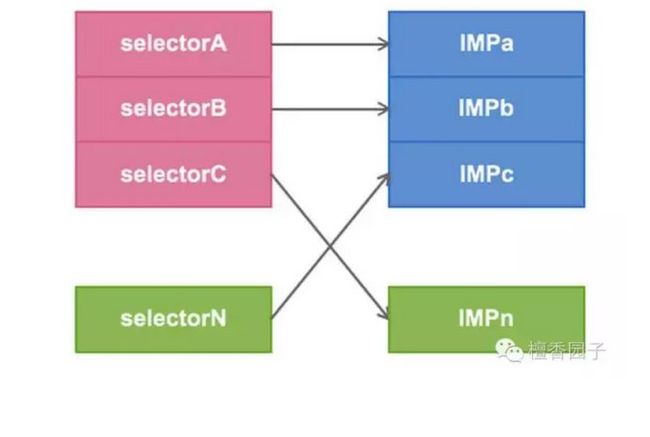- 专业课笔记——(第一章:C、C++基础知识)
大小胖虎
C/C++基础知识笔记算法CC++数据类型操作类型笔记
目录一、数据类型二、不同格式输出的含义三、运算符优先级四、计算机基础知识五、零碎基础知识点一、数据类型1、C语言中的最简单的数据类型:整数类型、字符类型、浮点类型(C语言没有逻辑型(bool)它是C++特有的,而c语言它是通过0、1表示实现的)构造类型:枚举型、数组类型、结构体类型、共用体类型、类类型(C++特有)2、计算字符串长度:strlen():c语言中的函数length():c++中的函数
- 字节跳动算法高频题:动态规划最优模板
知识产权13937636601
计算机算法动态规划
本文系统梳理字节跳动近三年算法面试中的动态规划(DP)高频题型,提炼出适用于80%场景的通用解题模板。通过背包问题、字符串处理、状态压缩等六大核心模块解析,结合跳槽、股票交易、编辑距离等15道真题案例,揭示动态规划的状态转移方程构建规律与维度优化技巧,助您在面试中实现时间复杂度与空间复杂度的双重最优解。第一章动态规划基础框架1.1动态规划三大特征特征判定标准真题案例重叠子问题递归树中存在重复计算节
- Java基础9(throws和throw、异常细节)
孤影恋长风
java开发语言
throws和throw可能出现错误的代码写在try中e接受可能出现的异常,为了通用性一般不要写精确的异常,写最大的Exceptionthor抛出一个具体的异常,throw跟在函数之后,标志有异常抛出publicvoidtext(){如果这个函数将有异常处理,有两种策略,1.立即用try处理2.不处理,抛给调用此函数对象异常处理的原则,谁调用谁处理以后调用别人的函数,除了关注函数的参数,返回值,还
- Ubuntu常用命令大全 | 零基础快速上手指南
算法练习生
Linux--Ubuntuubuntu开发语言笔记算法linux
Ubuntu常用命令大全|零基础快速上手指南目录文件与目录操作文本查看与编辑权限管理系统管理网络操作磁盘与文件系统软件包管理压缩与解压其他实用命令1.文件与目录操作基础命令命令功能示例cd切换目录cd~(切换到用户主目录)pwd显示当前路径pwd→/home/userls列出目录内容ls-lh(显示详细文件大小)示例代码:ls-alh运行效果:drwxr-xr-x2usergroup4.0KOct
- 雅特力AT32F435学习——3.PWM实验
数字梦想家
学习
PWM实验定时器浑身都是包其中PWM占大头,因为PWM应用太广了:呼吸灯、电机、蜂鸣器,生日火炬里的声音都是PWM干的,接下来就让我们学一下雅特力AT32F435单片机的PWM吧。基础知识老样子对于PWM的基础了解那肯定直接从数据手册学起,先要从头到尾过一遍。PWM是高级功能不是一般的定时器就能有的,所以第一时间就要看数据手册看看哪些定时器用PWM功能,并且确认PWM输入输出的通道和引脚,本次教学
- Pytest基础使用
北条苒茗殇
pytest
概述Pytest是Python里的一个强大的测试框架,灵活易用,可以进行功能,自动化测试使用,可以与Requests,Selenium等进行结合使用,同时可以生成Html的报告。一、Pytest的基本使用在未指定Pytest的配置文件时,会对以下文件进行执行:test_*.py,如:test_1.py*_test.py,如:1_test.py会对以下的类和函数进行执行:类:以Test_开头的类,如
- 火语言 RPA 的独特优势:为何它能脱颖而出?
IDFaucet
rpa
(一)低门槛上手:技术小白的福音与其他一些需要深厚编程基础才能操作的自动化工具不同,火语言RPA的语法设计极其亲民。它采用类似于自然语言的表达方式,通过简单的指令组合,就能实现复杂的自动化流程。例如,“打开Excel文件‘销售数据.xlsx’,选中A1到C10单元格区域,计算平均值并将结果填入D1单元格”,这样一段简单的描述,通过火语言稍加整理就能转化为可执行的自动化脚本。这意味着,即使你从未接触
- 交换机救命命令手册:华为 & 思科平台最全运维指令速查表
IT程序媛-桃子
数通华为认证服务器运维
引言:这是一份救命的交换机运维秘籍在交换机配置与故障排查过程中,不论你是初入网络世界的小白,还是年资数年的资深工程师,总会遇到那些“关键时刻靠得住的命令”。这篇文章,我将整理一份覆盖华为+思科双平台的实战命令手册,从最基础的设备状态查看,到VLAN、STP、防环、LACP、QOS、抓包、限速、安全加固等操作,通通囊括。关键时刻,拿来即用,就是这篇的全部意义。01️⃣基础生存命令:先活下来再说场景华
- Linux:动静态库
嶔某
Linuxlinux运维服务器
✨✨所属专栏:Linux✨✨✨✨作者主页:嶔某✨✨什么是库库是写好的现有的,成熟的可以复用的代码。现实中每个程序都需要依赖很多基础的底层库。世界上有很多大佬为了实现某一个功能,写了很多很NB的代码。他们把代码封装成一个库,这样我们不必写出像他们一样厉害的代码,只需要使用它们分享的库,也能使用对应的功能了。本质上来说库是一种可执行代码的二进制形式,可以被操作系统载入内存执行。静态库.a[Linux/
- 基于 C++ 类的程序设计模式与应用研究
饼干帅成渣
c++开发语言
摘要C++语言凭借其强大的功能在软件开发领域占据重要地位,类作为C++面向对象编程的核心,承载着数据封装、代码复用等关键使命。本文深入剖析C++类的基础概念、核心特性及其在实际编程中的应用。通过详细阐述类的定义、成员构成、访问控制以及封装、继承、多态等特性,结合具体代码示例展示其在构建软件架构中的作用。同时,探讨C++类在应用中面临的常见问题及解决方案,为开发者高效运用C++类进行程序设计提供有力
- 庖丁解java(一篇文章学java)
庖丁解java
java开发语言springboot后端
(大家不用收藏这篇文章,因为这篇文章会经常更新,也就是删除后重发)一篇文章学java,这是我滴一个执念...当然,真一篇文章就写完java基础,java架构,java业务实现,java业务扩展,根本不可能.所以,这篇文章,就是一个索引,索什么呢?请看下文...关于决定开始写博文的介绍(一切故事的起点源于这一次反省)中小技术公司的软扩展(微服务扩展是否有必要?)-CSDN博客SpringCloud(
- “统计视角看世界”专栏阅读引导
赛卡
统计视角看世界信息可视化数据分析
根据文章主题和逻辑关系,我为您设计以下阅读引导方案:1.六西格玛基础2.帕累托图3.直方图4.散点图基础5.散点图高阶6.多变量可视化7.密度图进阶8.回归分析配套文字说明:入门基石(必读)《1.六西格玛遇上Python》→方法论总纲,建议优先精读基础三剑客(可并行)├─《2.帕累托图》→重点数据排序与决策├─《3.直方图》→数据分布核心工具└─《4.散点图》→数据探索第一视角高阶应用链(递进学习
- 蓝桥杯web备赛----html篇
菥菥爱嘻嘻
蓝桥杯备赛前端蓝桥杯html
1、html写在前面,html相对简单,主要会考基础标签、html5新特性、html5本地存储、但是目前我还没有做到本地存储的题目1.1基础标签(1)、链接标签a:访问Examplehref:链接target:定义链接的打开方式。_blank:在新窗口或新标签页中打开链接。_self:在当前窗口或标签页中打开链接(默认)。_parent:在父框架中打开链接。_top:在整个窗口中打开链接,取消任何
- ts之变量声明以及语法细节,ts小白初学ing
菥菥爱嘻嘻
小白学习tstypescript前端
TypeScript用js编写的项目虽然开发很快,但是维护是成本很高,而且js不报错啊啊啊啊啊!!!以js为基础进行扩展的给变量赋予了类型语法、实战(ts+vue3)TypeScript是JavaScript的一个超集,支持ECMAScript6标准(ES6教程)。TypeScript由微软开发的自由和开源的编程语言,在JavaScript的基础上增加了静态类型检查的超集。TypeScript设计
- CSS基础知识
Toreme
csscss3html
基础教程使用css和不使用比较不使用css不使用css给每一个单元格加上背景颜色就需要给每一个td元素加上bgcolor属性使用css使用css给每一个单元格加上背景颜色,只需要在最前面写一段css代码,所有的单元格都有背景颜色了,这是一种分层设计的思想,css把和颜色,大小位置等信息剥离到不同的td有不同的背景色选择器语法css的语法selector{property:value;}即选择器{属
- 【TypeScript学习】TypeScript基础学习总结二
JAMJAM_NoName
typescript学习前端
主要记录ts中的类、接口与泛型1.类无论是在哪种语言中,类都是面向对象编程(OOP)的一个主要实现方式。能够实现代码更加灵活,更具有结构化。类作用都是提供一个模板,通过类可以创建多个具有相同结构的对象。//类的定义,与对象的声明classStudent{id:stringname:stringage:numberconstructor(id:string,name:string,age:numbe
- 第6章:Dockerfile最佳实践:多阶段构建与镜像优化
DogDog_Shuai
docker容器运维
第6章:Dockerfile最佳实践:多阶段构建与镜像优化作者:DogDog_Shuai阅读时间:约30分钟难度:中级目录1.引言2.Dockerfile基础3.多阶段构建4.镜像优化技术5.最佳实践指南6.总结1.引言Dockerfile是构建Docker镜
- EasyRoad3D简易使用手册
归海_一刀
UnityEasyRoad道路Unity
EasyRoad3D简易使用手册使用注意基础使用简单路面弯道衔接问题地形的起伏高低问题倾斜问题路面颠簸问题进阶问题EasyRoad3D简易使用手册使用注意EasyRoads3D可以简单了解为一款道路的建造插件,有免费版,Pro是付费版本。官网可以下载。版本的不同,可能会有一些差别,有些地方很大,有些地方很小。所以我只针对我自己的版本。具体的还是去看官方的英文文档。基础使用简单路面这是初始的面板。
- 使用vite+react+ts+Ant Design开发后台管理项目(五)
吕彬-前端
react.jsjavascript前端
前言本文将引导开发者从零基础开始,运用vite、react、react-router、react-redux、AntDesign、less、tailwindcss、axios等前沿技术栈,构建一个高效、响应式的后台管理系统。通过详细的步骤和实践指导,文章旨在为开发者揭示如何利用这些技术工具,从项目构思到最终实现的全过程,提供清晰的开发思路和实用的技术应用技巧。项目gitee地址:lbking666
- Tiny RDM:轻量级跨平台Redis桌面管理工具
廉峥旭
TinyRDM:轻量级跨平台Redis桌面管理工具tiny-rdmAModernRedisGUIClient项目地址:https://gitcode.com/gh_mirrors/ti/tiny-rdm项目基础介绍TinyRDM(TinyRedisDesktopManager)是一款现代化的轻量级Redis桌面管理工具,适用于Mac、Windows和Linux平台。该项目主要使用Go、Vue和Ja
- 数据库设计20条军规:血泪教训换来的实战指南
潘多编程
数据库
优秀的数据库设计不是炫技,而是用最低的成本规避最痛的坑。在经历过数百次深夜故障复盘后,我总结了这些真正经得起生产环境考验的铁律:一、基础生存法则第三范式是起点不是终点订单表里的收货地址必须拆成独立地址表?先看业务场景:日均10万订单的电商系统,拆分会带来3表关联查询,不拆可能存储冗余。实战解法:高频查询字段适当冗余,低频字段严格范式化。命名规范要强制执行user_order_2023比tbl_us
- C# 技术使用笔记:Asp.Net Core MVC 中控制器 Controllers 中返回数据使用详解
caifox菜狐狸
C#技术使用笔记c#笔记asp.netcoreViewResultJsonResultRedirect控制器
本文将深入探讨ASP.NETCoreMVC控制器中返回数据的多种方式,从基础的ViewResult到灵活的IActionResult,再到强大的ActionResult,我们将逐一剖析它们的使用场景、优缺点以及最佳实践。通过丰富的代码示例和详细的解释,帮助读者全面掌握控制器返回数据的技巧,从而提升开发效率,构建更加健壮和高效的Web应用程序。无论你是初学者还是有一定经验的开发者,本文都将为你提供有
- STM32 Cube MX 软件使用教程和技巧(纯干货分享~~!)
立量
嵌入式IDEstm32单片机嵌入式硬件
以下是关于STM32CubeMX的详细使用教程和一些实用技巧,帮助您快速上手并高效开发STM32项目:一、STM32CubeMX简介功能:ST官方推出的图形化配置工具,用于生成STM32微控制器的初始化代码(基于HAL库/LL库),支持引脚分配、时钟树配置、外设初始化等。优势:减少底层代码编写时间,避免手动配置寄存器,兼容多种IDE(Keil、IAR、STM32CubeIDE等)。二、基础使用教程
- RabbitMQ基本原理
码农小伙
消息队列rabbitmq分布式
一、基本结构所有中间件技术都是基于TCP/IP协议基础之上进行构建新的协议规范,RabbitMQ遵循的是AMQP协议(AdvancedMessageQueuingProtocol-高级消息队列协议)。生产者发送消息流程:1、生产者和Broker建立TCP连接;2、生产者和Broker建立通道;3、生产者通过通道消息发送给Broker,由Exchange将消息进行转发;4、Exchange将消息转发
- 1.✨学习系统浅探
*TQK*
自我认知规划(不让别人看)认知提升
不要过于苛求完美,允许自己偶尔放松,保持积极心态。长期坚持比短期高强度更重要,尤其是为三年后的考研做准备,需要持续的努力而不是一时的冲刺。定期复盘,调整计划。如果某天状态不好,可以适当减少任务量,保持弹性。同时,保证足够的睡眠和运动,这对维持多巴胺水平和整体精力很重要。一、系统构建一Deepseek指令我的大一下学期已经开始了,这一学期我又有新的计算机课程。上一学期我学了C语言,基础知识掌握的还可
- OpenStack 云平台的深度定制与性能优化
算法探索者
openstack
引言OpenStack作为一款领先的开源云平台,以其高度的灵活性和可扩展性,为企业构建云计算基础设施提供了强大的支持。然而,不同企业的业务场景和技术需求千差万别,原生的OpenStack部署往往无法完全满足企业特定的要求。因此,对OpenStack云平台进行深度定制,并在此基础上进行性能优化,成为了企业充分发挥OpenStack优势、提升云服务质量的关键。本文将深入探讨如何针对企业特定需求对Ope
- 【新手入门】全面攻略:搭建Electron-Squirrel-Startup环境
苏葵毅Bess
#【新手入门】全面攻略:搭建Electron-Squirrel-Startup环境electron-squirrel-startupDefaultSquirrel.WindowseventhandlerforyourElectronapps.项目地址:https://gitcode.com/gh_mirrors/el/electron-squirrel-startup项目基础介绍Electron-
- 操作系统高频(一)线程与进程
HUZ_小Z
开发语言操作系统课程设计笔记经验分享
操作系统高频(一)线程与进程1.什么是线程?进程,线程,彼此有什么区别?⭐⭐⭐进程进程(Process)是计算机中的程序关于某数据集合上的一次运行活动,是系统进行资源分配的基本单位。是操作系统结构的基础。进程是线程的容器。程序是指令、数据及其组织形式的描述,进程是程序的实体。线程线程是操作系统最小的运算调度单位。线程包含在进程中,是进程中实际执行任务的单位。在一些操作系统中,线程也被称为轻量级进程
- Deepseek和豆包在技术创新方面有哪些相同点与不同点?
alankuo
人工智能
Deepseek和豆包在技术创新方面的相同点与不同点如下:相同点架构基础:都以Transformer架构为基础进行开发。Transformer架构能有效处理长序列数据,捕捉文本语义信息,为模型性能提供基础。混合专家模型(MoE)应用:都采用了MoE架构。该架构将模型拆分为多个“专家”,训练和推理时让不同“专家”负责不同任务或数据子集,提高模型表达能力和效率,降低训练成本。模型优化以提升性能:都通过
- 燃爆!程序员如何借助 AI 大模型冲破编程效率枷锁?(以DeepSeek,ChatGPT为例)
羑悻的小杀马特.
AI学习chatgptdeepseekAI大模型开发语言
AI大模型已成为程序员提升效率的有力助手。本文聚焦DeepSeek和ChatGPT,探讨程序员如何借其冲破编程效率枷锁。在代码编写阶段,它们能快速生成基础框架、实现特定功能及复杂算法代码;调试时,精准分析错误并给出优化建议;文档生成方面,为函数、类及项目文档助力。程序员需掌握高效交互技巧,结合自身经验,合理利用AI大模型,全面提升编程效率,开启高效编程新境界。目录一·本篇背景:二、AI大模型简介2
- apache ftpserver-CentOS config
gengzg
apache
<server xmlns="http://mina.apache.org/ftpserver/spring/v1"
xmlns:xsi="http://www.w3.org/2001/XMLSchema-instance"
xsi:schemaLocation="
http://mina.apache.o
- 优化MySQL数据库性能的八种方法
AILIKES
sqlmysql
1、选取最适用的字段属性 MySQL可以很好的支持大数据量的存取,但是一般说来,数据库中的表越小,在它上面执行的查询也就会越快。因此,在创建表的时候,为了获得更好的 性能,我们可以将表中字段的宽度设得尽可能小。例如,在定义邮政编码这个字段时,如果将其设置为CHAR(255),显然给数据库增加了不必要的空间,甚至使用VARCHAR这种类型也是多余的,因为CHAR(6)就可以很
- JeeSite 企业信息化快速开发平台
Kai_Ge
JeeSite
JeeSite 企业信息化快速开发平台
平台简介
JeeSite是基于多个优秀的开源项目,高度整合封装而成的高效,高性能,强安全性的开源Java EE快速开发平台。
JeeSite本身是以Spring Framework为核心容器,Spring MVC为模型视图控制器,MyBatis为数据访问层, Apache Shiro为权限授权层,Ehcahe对常用数据进行缓存,Activit为工作流
- 通过Spring Mail Api发送邮件
120153216
邮件main
原文地址:http://www.open-open.com/lib/view/open1346857871615.html
使用Java Mail API来发送邮件也很容易实现,但是最近公司一个同事封装的邮件API实在让我无法接受,于是便打算改用Spring Mail API来发送邮件,顺便记录下这篇文章。 【Spring Mail API】
Spring Mail API都在org.spri
- Pysvn 程序员使用指南
2002wmj
SVN
源文件:http://ju.outofmemory.cn/entry/35762
这是一篇关于pysvn模块的指南.
完整和详细的API请参考 http://pysvn.tigris.org/docs/pysvn_prog_ref.html.
pysvn是操作Subversion版本控制的Python接口模块. 这个API接口可以管理一个工作副本, 查询档案库, 和同步两个.
该
- 在SQLSERVER中查找被阻塞和正在被阻塞的SQL
357029540
SQL Server
SELECT R.session_id AS BlockedSessionID ,
S.session_id AS BlockingSessionID ,
Q1.text AS Block
- Intent 常用的用法备忘
7454103
.netandroidGoogleBlogF#
Intent
应该算是Android中特有的东西。你可以在Intent中指定程序 要执行的动作(比如:view,edit,dial),以及程序执行到该动作时所需要的资料 。都指定好后,只要调用startActivity(),Android系统 会自动寻找最符合你指定要求的应用 程序,并执行该程序。
下面列出几种Intent 的用法
显示网页:
- Spring定时器时间配置
adminjun
spring时间配置定时器
红圈中的值由6个数字组成,中间用空格分隔。第一个数字表示定时任务执行时间的秒,第二个数字表示分钟,第三个数字表示小时,后面三个数字表示日,月,年,< xmlnamespace prefix ="o" ns ="urn:schemas-microsoft-com:office:office" />
测试的时候,由于是每天定时执行,所以后面三个数
- POJ 2421 Constructing Roads 最小生成树
aijuans
最小生成树
来源:http://poj.org/problem?id=2421
题意:还是给你n个点,然后求最小生成树。特殊之处在于有一些点之间已经连上了边。
思路:对于已经有边的点,特殊标记一下,加边的时候把这些边的权值赋值为0即可。这样就可以既保证这些边一定存在,又保证了所求的结果正确。
代码:
#include <iostream>
#include <cstdio>
- 重构笔记——提取方法(Extract Method)
ayaoxinchao
java重构提炼函数局部变量提取方法
提取方法(Extract Method)是最常用的重构手法之一。当看到一个方法过长或者方法很难让人理解其意图的时候,这时候就可以用提取方法这种重构手法。
下面是我学习这个重构手法的笔记:
提取方法看起来好像仅仅是将被提取方法中的一段代码,放到目标方法中。其实,当方法足够复杂的时候,提取方法也会变得复杂。当然,如果提取方法这种重构手法无法进行时,就可能需要选择其他
- 为UILabel添加点击事件
bewithme
UILabel
默认情况下UILabel是不支持点击事件的,网上查了查居然没有一个是完整的答案,现在我提供一个完整的代码。
UILabel *l = [[UILabel alloc] initWithFrame:CGRectMake(60, 0, listV.frame.size.width - 60, listV.frame.size.height)]
- NoSQL数据库之Redis数据库管理(PHP-REDIS实例)
bijian1013
redis数据库NoSQL
一.redis.php
<?php
//实例化
$redis = new Redis();
//连接服务器
$redis->connect("localhost");
//授权
$redis->auth("lamplijie");
//相关操
- SecureCRT使用备注
bingyingao
secureCRT每页行数
SecureCRT日志和卷屏行数设置
一、使用securecrt时,设置自动日志记录功能。
1、在C:\Program Files\SecureCRT\下新建一个文件夹(也就是你的CRT可执行文件的路径),命名为Logs;
2、点击Options -> Global Options -> Default Session -> Edite Default Sett
- 【Scala九】Scala核心三:泛型
bit1129
scala
泛型类
package spark.examples.scala.generics
class GenericClass[K, V](val k: K, val v: V) {
def print() {
println(k + "," + v)
}
}
object GenericClass {
def main(args: Arr
- 素数与音乐
bookjovi
素数数学haskell
由于一直在看haskell,不可避免的接触到了很多数学知识,其中数论最多,如素数,斐波那契数列等,很多在学生时代无法理解的数学现在似乎也能领悟到那么一点。
闲暇之余,从图书馆找了<<The music of primes>>和<<世界数学通史>>读了几遍。其中素数的音乐这本书与软件界熟知的&l
- Java-Collections Framework学习与总结-IdentityHashMap
BrokenDreams
Collections
这篇总结一下java.util.IdentityHashMap。从类名上可以猜到,这个类本质应该还是一个散列表,只是前面有Identity修饰,是一种特殊的HashMap。
简单的说,IdentityHashMap和HashM
- 读《研磨设计模式》-代码笔记-享元模式-Flyweight
bylijinnan
java设计模式
声明: 本文只为方便我个人查阅和理解,详细的分析以及源代码请移步 原作者的博客http://chjavach.iteye.com/
import java.util.ArrayList;
import java.util.Collection;
import java.util.HashMap;
import java.util.List;
import java
- PS人像润饰&调色教程集锦
cherishLC
PS
1、仿制图章沿轮廓润饰——柔化图像,凸显轮廓
http://www.howzhi.com/course/retouching/
新建一个透明图层,使用仿制图章不断Alt+鼠标左键选点,设置透明度为21%,大小为修饰区域的1/3左右(比如胳膊宽度的1/3),再沿纹理方向(比如胳膊方向)进行修饰。
所有修饰完成后,对该润饰图层添加噪声,噪声大小应该和
- 更新多个字段的UPDATE语句
crabdave
update
更新多个字段的UPDATE语句
update tableA a
set (a.v1, a.v2, a.v3, a.v4) = --使用括号确定更新的字段范围
- hive实例讲解实现in和not in子句
daizj
hivenot inin
本文转自:http://www.cnblogs.com/ggjucheng/archive/2013/01/03/2842855.html
当前hive不支持 in或not in 中包含查询子句的语法,所以只能通过left join实现。
假设有一个登陆表login(当天登陆记录,只有一个uid),和一个用户注册表regusers(当天注册用户,字段只有一个uid),这两个表都包含
- 一道24点的10+种非人类解法(2,3,10,10)
dsjt
算法
这是人类算24点的方法?!!!
事件缘由:今天晚上突然看到一条24点状态,当时惊为天人,这NM叫人啊?以下是那条状态
朱明西 : 24点,算2 3 10 10,我LX炮狗等面对四张牌痛不欲生,结果跑跑同学扫了一眼说,算出来了,2的10次方减10的3次方。。我草这是人类的算24点啊。。
然后么。。。我就在深夜很得瑟的问室友求室友算
刚出完题,文哥的暴走之旅开始了
5秒后
- 关于YII的菜单插件 CMenu和面包末breadcrumbs路径管理插件的一些使用问题
dcj3sjt126com
yiiframework
在使用 YIi的路径管理工具时,发现了一个问题。 <?php
- 对象与关系之间的矛盾:“阻抗失配”效应[转]
come_for_dream
对象
概述
“阻抗失配”这一词组通常用来描述面向对象应用向传统的关系数据库(RDBMS)存放数据时所遇到的数据表述不一致问题。C++程序员已经被这个问题困扰了好多年,而现在的Java程序员和其它面向对象开发人员也对这个问题深感头痛。
“阻抗失配”产生的原因是因为对象模型与关系模型之间缺乏固有的亲合力。“阻抗失配”所带来的问题包括:类的层次关系必须绑定为关系模式(将对象
- 学习编程那点事
gcq511120594
编程互联网
一年前的夏天,我还在纠结要不要改行,要不要去学php?能学到真本事吗?改行能成功吗?太多的问题,我终于不顾一切,下定决心,辞去了工作,来到传说中的帝都。老师给的乘车方式还算有效,很顺利的就到了学校,赶巧了,正好学校搬到了新校区。先安顿了下来,过了个轻松的周末,第一次到帝都,逛逛吧!
接下来的周一,是我噩梦的开始,学习内容对我这个零基础的人来说,除了勉强完成老师布置的作业外,我已经没有时间和精力去
- Reverse Linked List II
hcx2013
list
Reverse a linked list from position m to n. Do it in-place and in one-pass.
For example:Given 1->2->3->4->5->NULL, m = 2 and n = 4,
return
- Spring4.1新特性——页面自动化测试框架Spring MVC Test HtmlUnit简介
jinnianshilongnian
spring 4.1
目录
Spring4.1新特性——综述
Spring4.1新特性——Spring核心部分及其他
Spring4.1新特性——Spring缓存框架增强
Spring4.1新特性——异步调用和事件机制的异常处理
Spring4.1新特性——数据库集成测试脚本初始化
Spring4.1新特性——Spring MVC增强
Spring4.1新特性——页面自动化测试框架Spring MVC T
- Hadoop集群工具distcp
liyonghui160com
1. 环境描述
两个集群:rock 和 stone
rock无kerberos权限认证,stone有要求认证。
1. 从rock复制到stone,采用hdfs
Hadoop distcp -i hdfs://rock-nn:8020/user/cxz/input hdfs://stone-nn:8020/user/cxz/运行在rock端,即源端问题:报版本
- 一个备份MySQL数据库的简单Shell脚本
pda158
mysql脚本
主脚本(用于备份mysql数据库): 该Shell脚本可以自动备份
数据库。只要复制粘贴本脚本到文本编辑器中,输入数据库用户名、密码以及数据库名即可。我备份数据库使用的是mysqlump 命令。后面会对每行脚本命令进行说明。
1. 分别建立目录“backup”和“oldbackup” #mkdir /backup #mkdir /oldbackup
- 300个涵盖IT各方面的免费资源(中)——设计与编码篇
shoothao
IT资源图标库图片库色彩板字体
A. 免费的设计资源
Freebbble:来自于Dribbble的免费的高质量作品。
Dribbble:Dribbble上“免费”的搜索结果——这是巨大的宝藏。
Graphic Burger:每个像素点都做得很细的绝佳的设计资源。
Pixel Buddha:免费和优质资源的专业社区。
Premium Pixels:为那些有创意的人提供免费的素材。
- thrift总结 - 跨语言服务开发
uule
thrift
官网
官网JAVA例子
thrift入门介绍
IBM-Apache Thrift - 可伸缩的跨语言服务开发框架
Thrift入门及Java实例演示
thrift的使用介绍
RPC
POM:
<dependency>
<groupId>org.apache.thrift</groupId>

